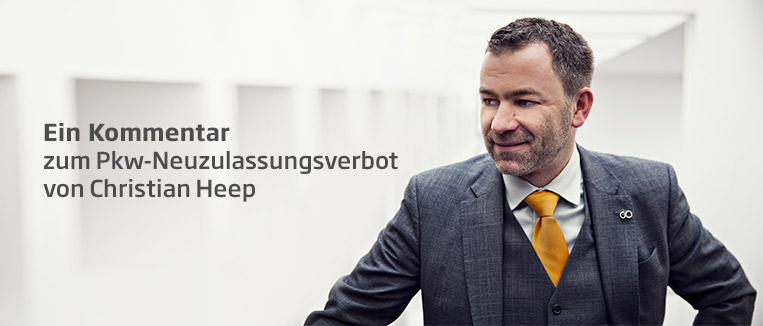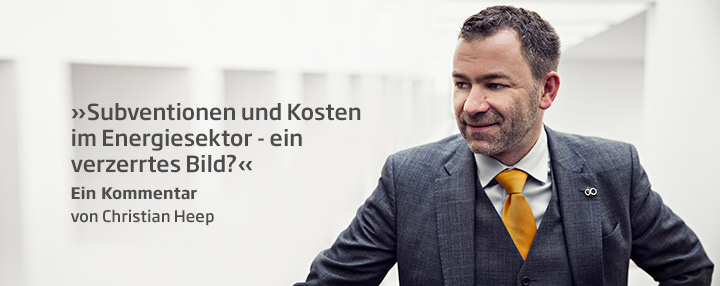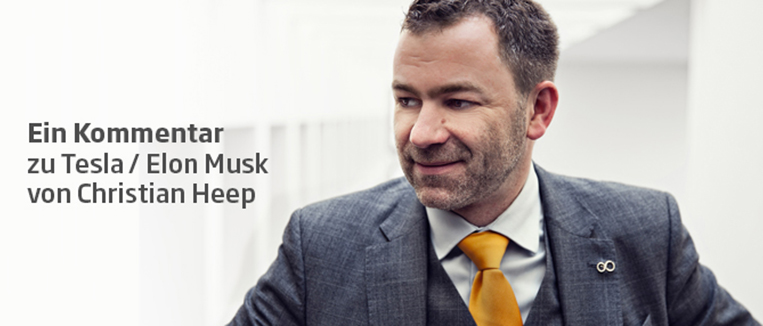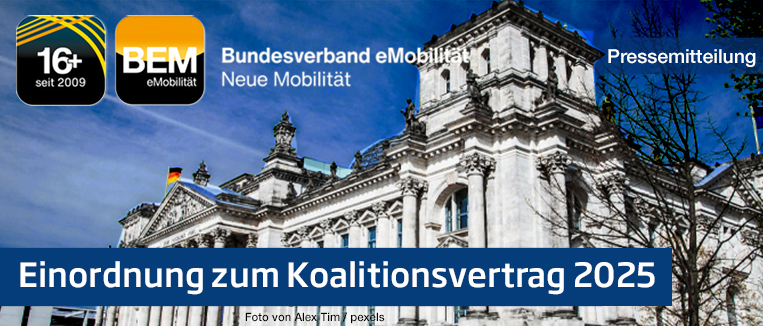
A comment: It’s about time…!
The EU Parliament has finally voted in favour of the end of the combustion engine. From 2035, only new cars that do not emit greenhouse gases are to be sold in the EU. In twelve years’ time, cars and vans that still emit carbon dioxide will no longer be allowed to be newly registered in Europe. The EU Parliament has sealed the de facto end of the combustion engine from 2035 – with 340 votes in favour and 279 against. In an interim step, CO2 emissions from newly registered cars and light commercial vehicles are to be reduced by around half by 2030.
This means that a demand that we have been formulating since the BEM was founded will finally become politically binding, creating clear economic framework conditions as well as planning and investment security for all market participants in the EU.
Commentary by BEM Vice-President Christian Heep on the ban on new car registrations
The EU decision finally creates – still far too late – but finally a completely new basis for our very special German car world, which simply cannot, will not and did not want to let go. For decades, it has been ingrained in politics, the media and society, and at the regulars’ table, it has been vaporised by half-truths, distortions and fake news to a particularly high degree and smouldered into the “car wisdom of last resort”. And this is now finally coming to an end. At least as far as new registrations are concerned. We’re not even talking about existing vehicles here. Another problem.
So the basis: for change. For transformation. For progress. And thus as a Europe-wide commitment – i.e. for all those who still want to sell four-wheeled vehicles in Germany and Europe – the framework condition that creates planning and financing security. This would have been needed much earlier, as the trilogy of jobs, value creation and prosperity is hidden behind this decision. Contrary to popular belief that electric cars would cost jobs, it is actually the other way round. Since we are not in an island market and should take US and Asian players seriously, we have jeopardised our own value creation precisely by trying to produce and sell cars on the international market for as long as possible that are technologically at a level that will no longer be competitive in the long term.
Even the current profits of the corporations cannot hide this realisation, as the investments that have not been made or have been made half-heartedly will be lost later on, the technological gap will continue to widen and it will be very difficult to regain market share later on. This is a misjudgement of the importance of new mobility, which can be attributed to the arrogance of the German automotive industry, which is actually very good, but has not been able to reflect sufficiently on itself and has shown too much inertia. This manoeuvre should have been corrected by politicians, but instead they have constantly laid a protective hand on the German car and weakened our actually good position on the world market through this climate-driven industrial policy. A disservice.
This decision is therefore very welcome, as our car and supplier industry now has to change if it wants to remain relevant and retain its business. On their own initiative, this has only worked to a limited extent and usually had completely different reasons. Now nobody can talk their way out of it and a demand that we have been formulating since the association was founded is finally becoming an economic policy commitment. Even a wind turbine can be built more quickly. But what the heck. We can get started now! Oh, one more thing: The entire argumentation above makes no reference to climate and environmental protection. Pure economic policy. So we’ve ended up on a path that holds out the prospect of sustainability and promotes a green economy which, in conjunction with renewable energies, has extremely great potential to put us back in first place internationally. Because that’s where we want to be again in the energy and mobility sector.
At the end of the story, we’ll need fewer cars, experience better mobility and improve our quality of life and prosperity – we’ll leave that for another time. One thing at a time.









